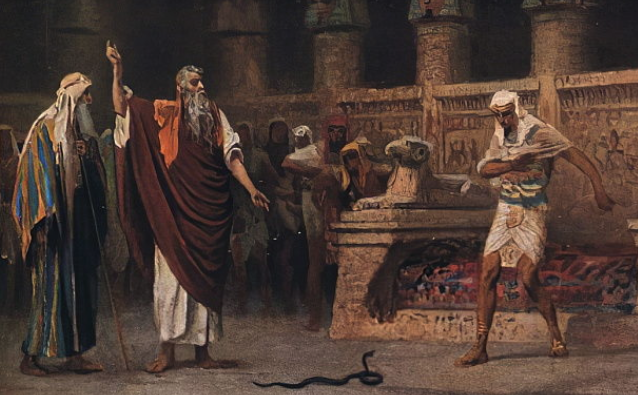Gary discusses some arguments people are raising online against trying to reform our current system of government.
God did not reserve His commandments for just the nation Israel and the church. Scripture makes it clear that all kings in Israel should copy the law in the presence of the Levitical priests so the rulers would be careful to observe every word of the law (Deuteronomy 17:18-19). Even nations outside Israel were required to follow the law as it was given to the nation Israel. Sodom and Gomorrah were destroyed because they broke the law of God (Genesis 13:13). God commanded the prophet Jonah to preach to the Ninevites (Assyrians) because their wickedness had come up before God (Jonah 1:2). The reason is clear: “There shall be one standard for you; it shall be for the stranger as well as the native, for I am the Lord your God” (Leviticus 24:22). The prophet Amos set forth the coming judgment of God to Damascus, Gaza, Tyre, Edom, Ammon, and Moab. These non-Israelite nations stood accountable for their transgressions: “For three transgressions . . . and for four I will not revoke its punishment” (Amos 1:3, 6, 9, 13; 2:1). Non-Israelite nations were to be judged along with Judah and Israel (2:4, 6). There is one law and one Lawgiver.
The New Testament shows a similar emphasis, as we should expect. The God of the New Testament is the same God of the Old Testament. God does not change (Malachi 3:6), therefore His law does not change (Matthew 5:17-20). Though Christians do not make blood sacrifices as remission for sins, we do keep this Old Testament law in Christ. The Bible states that “all things are cleansed with blood, and without shedding of blood there is no forgiveness” (Hebrews 9:22; cf. Leviticus 17:11). Shed blood still is required, but Jesus became our perfect and final sacrifice for sins: “[B]ut now once at the consummation of the ages He has been manifested to put away sin by the sacrifice of Himself” (Hebrews 9:26). All ceremonial laws, laws applied to the redemptive work of Christ, are fulfilled when an individual repents of his sin and unconditionally surrenders himself to Jesus.
The redemptive work of Jesus does not free us from an obligation to keep the moral and civil laws laid down in the Bible, however. Scripture shows no instance of an individual, Christian or pagan, who is no longer required to keep these laws. We are freed from the “curse of the law” (Galatians 3:13), but not from the demands of the law: “Do we then nullify the Law through faith? May it never be! On the contrary, we establish the Law” (Romans 3:31). Of course, the non-Christian is neither free from the curse of the law nor from the demands of the law: “He who believes in Him is not judged; he who does not believe has been judged already, because he has not believed in the name of the only begotten Son of God” (John 3:18).

God and Government
With a fresh new look, more images, an extensive subject and scripture index, and an updated bibliography, God and Government is ready to prepare a whole new generation to take on the political and religious battles confronting Christians today. May it be used in a new awakening of Christians in America—not just to inform minds, but to stimulate action and secure a better tomorrow for our posterity.
Buy NowGary discusses some arguments people are raising online against trying to reform our current system of government. The civil and the religious realm—Moses and Aaron—are both in need of constant reformation and this is the responsibility of those with a proper worldview. Should Christians do nothing? Or should they do their own thing? How will either of these responses avoid becoming as corrupt as the current system eventually?

